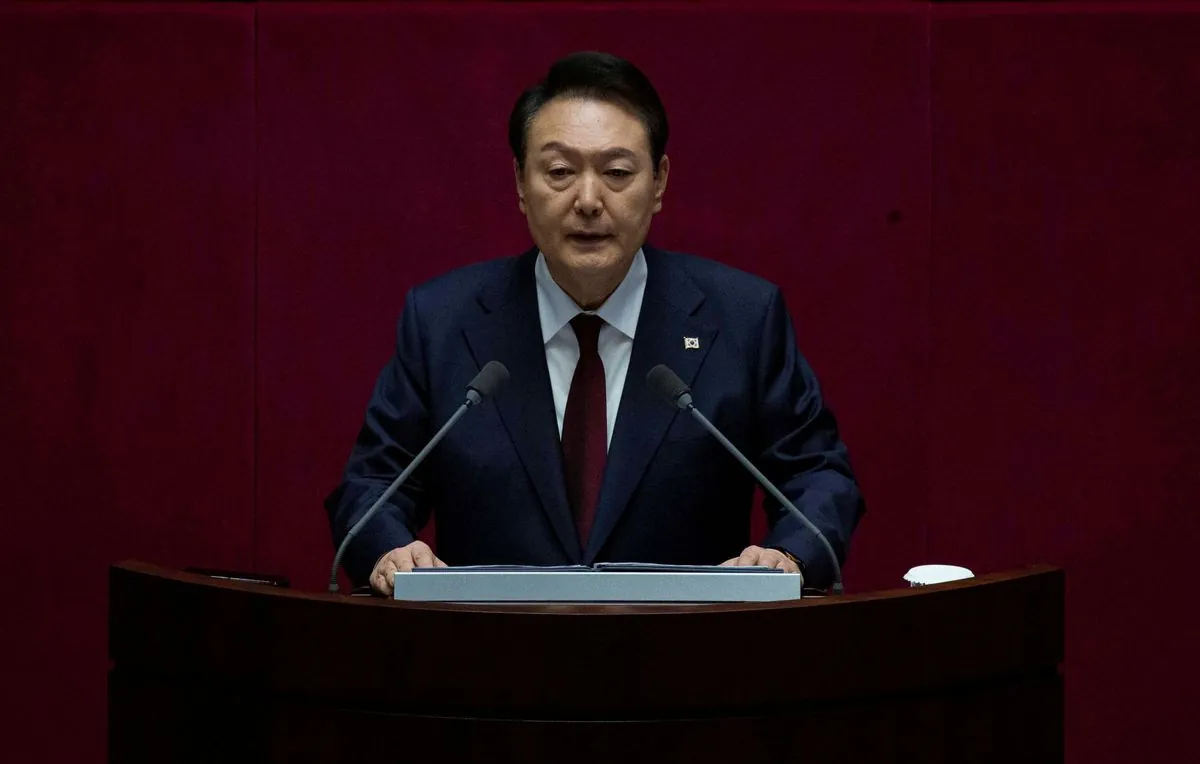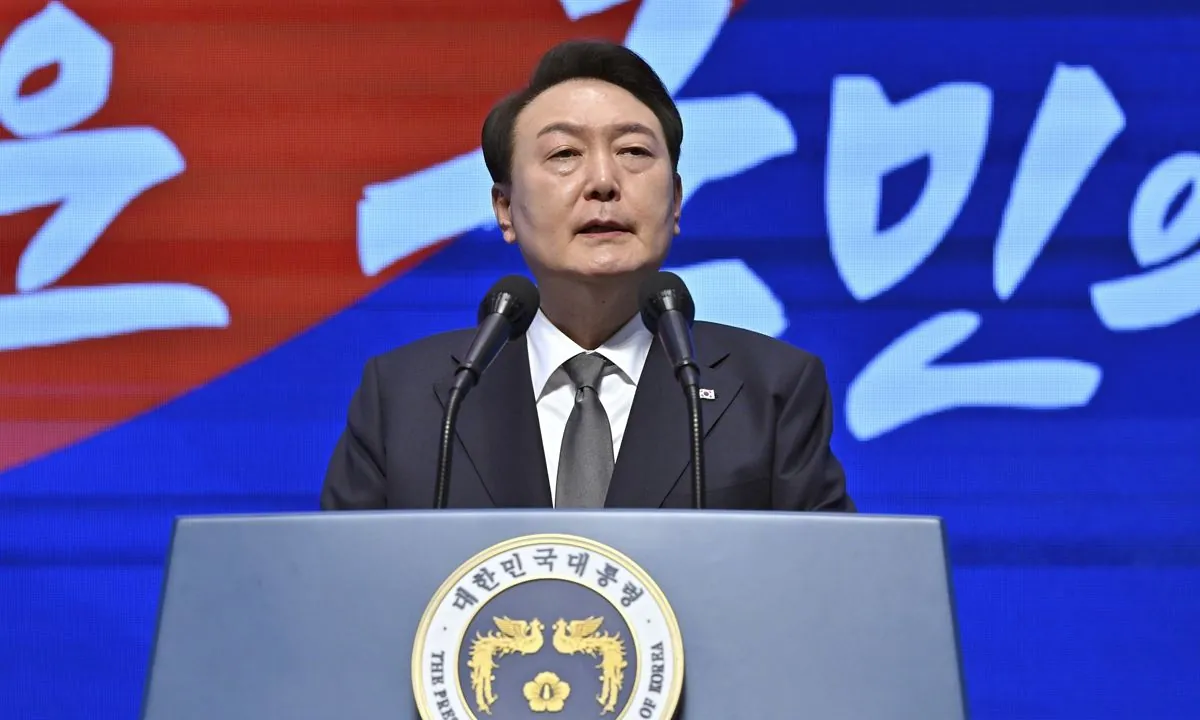South Korea Proposes Inter-Korean Working Group for Cooperation
South Korean President Yoon Suk Yeol offers to establish a consultative body with North Korea to ease tensions and resume cooperation. The proposal comes during his National Liberation Day speech.

In a significant diplomatic overture, Yoon Suk Yeol, the President of South Korea, has proposed the establishment of an inter-Korean working group. This initiative, announced during his National Liberation Day address on August 15, 2023, aims to alleviate tensions and reinvigorate economic cooperation between the two nations.
The speech, marking 79 years since Korea's liberation from Japanese colonial rule, outlined Yoon's vision for improved relations with North Korea. He expressed readiness to initiate political and economic cooperation, contingent on North Korea taking initial steps towards denuclearization.

The proposed working group would address various issues, including:
- Economic cooperation
- People-to-people exchanges
- Reunions of families separated by the Korean War
This proposal comes against a backdrop of complex historical and geopolitical factors. The Korean Peninsula has been divided since 1945, following World War II, with the two nations technically still at war due to the 1950-1953 Korean War ending in an armistice rather than a peace treaty.
North Korea's nuclear program, initiated with its first test in 2006, has been a significant source of international tension. The country has faced numerous sanctions due to its nuclear and missile activities, impacting its economy and international relations.
In contrast, South Korea has experienced substantial economic growth, currently ranking 10th globally by nominal GDP. This economic disparity underscores the potential benefits of cooperation for North Korea.
Previous attempts at reconciliation have yielded mixed results. The "Sunshine Policy" of engagement, pursued by South Korea from 1998 to 2008, and several inter-Korean summits since 2000 have had varying degrees of success.
The Demilitarized Zone (DMZ) separating the two nations remains one of the world's most heavily militarized borders, symbolizing the ongoing tensions. However, sporadic family reunions since 2000 have provided brief moments of connection for families separated by the division.
Yoon's proposal represents a potential shift in inter-Korean dynamics. However, its success will depend on North Korea's response and willingness to engage in denuclearization efforts.
"We will begin political and economic cooperation the moment North Korea takes just one step toward denuclearisation. Dialogue and cooperation can bring about substantive progress in inter-Korean relations."
As the situation develops, the international community will be watching closely, particularly given the presence of approximately 28,500 U.S. troops in South Korea as part of a mutual defense treaty.


































